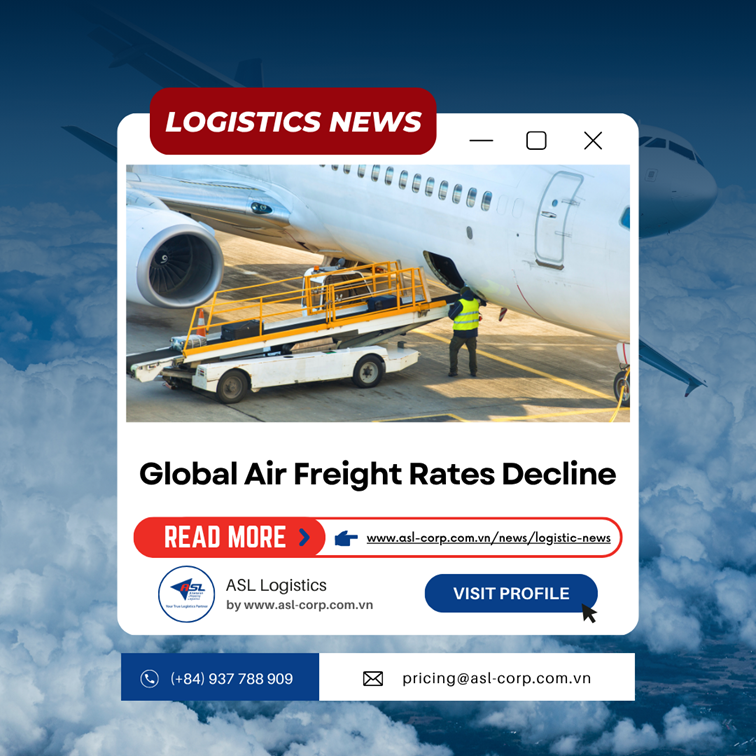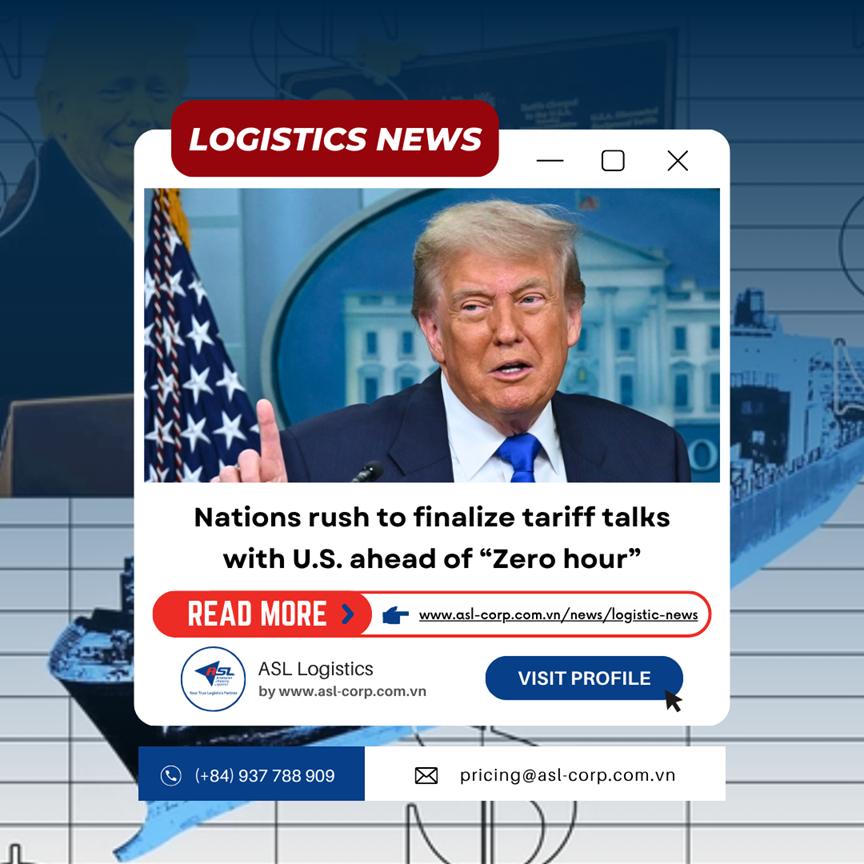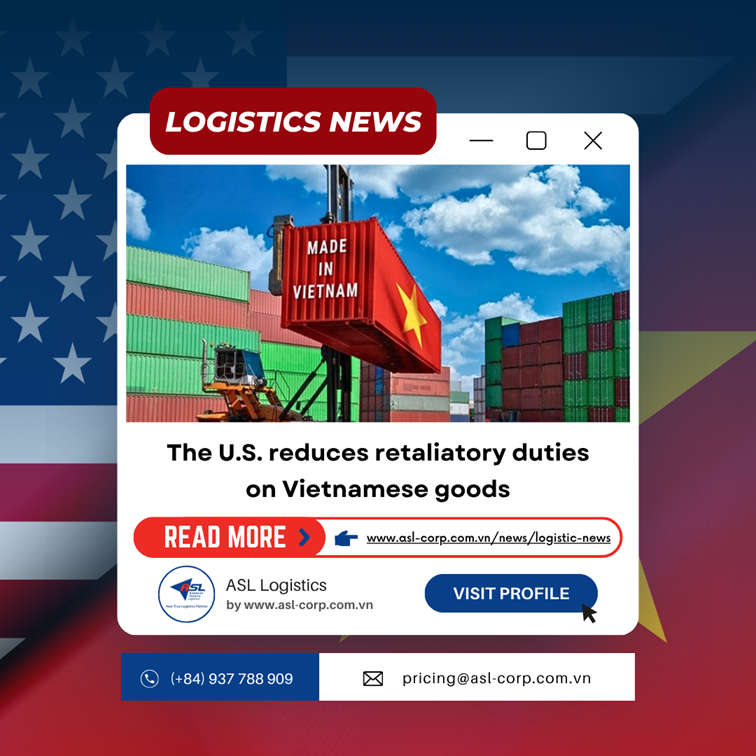Logistic News
MARITIME SHIPPING RISKS: WHAT YOU NEED TO KNOW
12 May 2025
In the maritime shipping industry-where every shipment depends on a complex and tightly coordinated chain of operations-terms such as port congestion, blank sailing, roll-over, and no-show cargo are no longer unfamiliar to import-export businesses or logistics professionals. These concepts are closely associated with common risks and disruptions in sea freight, directly affecting schedules, costs, and the overall reliability of cargo movement.
This article aims to clarify these key terms and provide insights to help businesses take a more proactive and strategic approach to managing risks in maritime logistics.
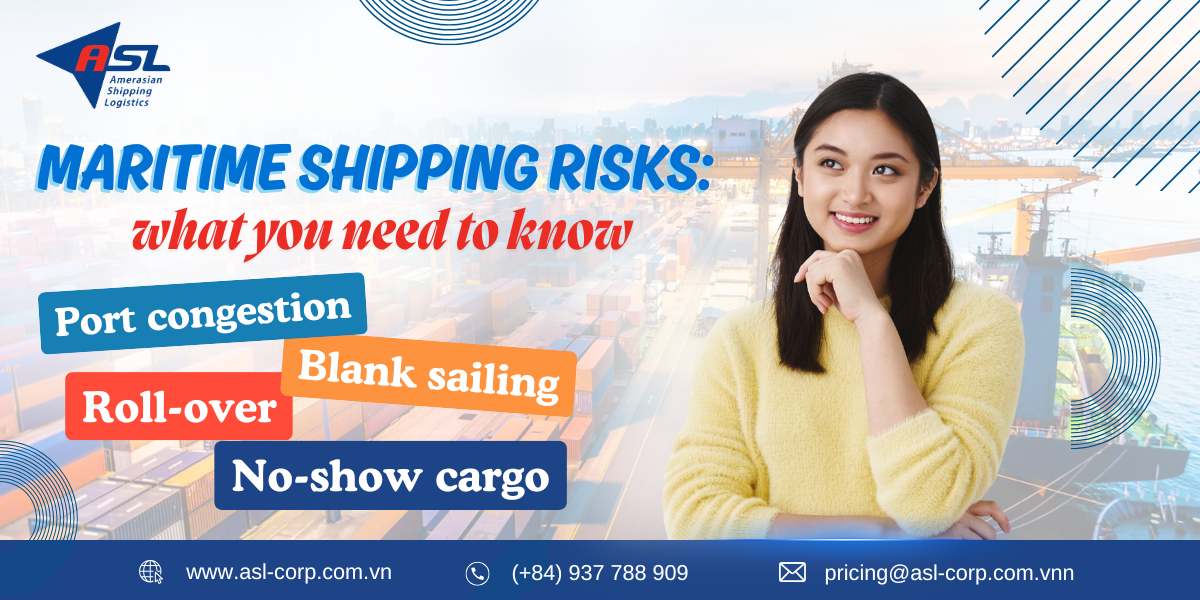
1. Port Congestion
Port congestion occurs when the number of vessels arriving at a seaport exceeds its handling capacity. As a result, ships are forced to anchor and wait for several days before loading or unloading operations can begin, leading to significant delays across the entire supply chain.

Common causes include:
- A sudden surge in cargo volume due to increased consumer demand.
- Shortages of port labor, handling equipment, or available storage space.
- External factors such as severe weather conditions or infrastructure failures.
Example: In 2021, the Port of Oakland (USA) experienced severe congestion as a result of the global supply chain disruptions caused by the COVID-19 pandemic. Major carriers such as Maersk and Hapag-Lloyd chose to skip the port in order to maintain their schedules on other trade routes.
Consequences:
- Delivery delays and additional charges such as demurrage and detention (DEM/DET).
- Disruptions to vessel schedules and inland transportation.
- Increased logistics costs and diminished customer trust.
2. Blank Sailing
Blank sailing refers to a situation where a shipping line decides to cancel a scheduled voyage or omit a planned port call. This decision is typically made to reduce operational costs or to cope with port congestion and scheduling disruptions.

Common causes include:
- Insufficient cargo volume to justify the voyage (low booking).
- Schedule disruptions caused by port congestion.
- Route restructuring by carriers to optimize operations.
Example: In March 2021, several shipping lines announced blank sailings on the Asia–North America route to avoid vessel congestion at the ports of Los Angeles and Long Beach. As a result, containers were rolled over to later sailings, significantly affecting major importers in the U.S.
Consequences:
- Cargo delays requiring rescheduling to later vessels (similar to roll-overs).
- Additional warehousing costs and adjustments in distribution plans.
- Disruptions to companies’ production and delivery schedules.
3. Roll-over
Roll-over refers to a situation where a container that has been booked is not loaded onto the scheduled vessel and is instead rolled over to the next sailing.

Common causes include:
- Vessel overbooking or space shortage.
- Incomplete shipping documentation or legal clearance.
- Carrier prioritization of larger clients or special cargo.
Example: Company B in Vietnam booked two containers to New York via CMA CGM. However, due to vessel overcapacity, one container was rolled over to the next departure, four days later, delaying delivery timelines.
Consequences:
- Delivery delays affecting contractual commitments.
- Incurring additional DEM/DET charges.
- Disruption to the supply chain and reputational damage with partners.
4. No-show Cargo
No-show Cargo occurs when the shipper fails to deliver the cargo on time despite having secured a booking, resulting in wasted vessel space.

Common causes include:
- Delays in production or cargo readiness.
- Documentation errors (e.g., invoice, certificate of origin, packing list).
- Last-minute changes in shipping plans without notification.
Example: Company C in Ho Chi Minh City booked space with Maersk for a garment shipment scheduled on June 10. However, due to a production delay and lack of prior notice, the cargo was not delivered on time and marked as a no-show.
Consequences:
- Loss of booking deposit or space reservation fees.
- Risk of being blacklisted or restricted from future bookings.
- Disruption of transport schedules and loss of credibility with partners.
In a volatile maritime transport landscape, understanding risks such as Port Congestion, Blank Sailing, Roll-over, and No-show Cargo is crucial for businesses to proactively adjust logistics strategies, control costs, and ensure timely deliveries.
ASL Logistics - Your True Logistics Partner in Sea Freight
With over 20 years of experience in the industry and a team of professional staff, ASL Logistics is proud to be your true logistics partner in ocean freight transportation. We are committed to providing flexible solutions and minimizing risks to the greatest extent for our clients, offering comprehensive ocean freight services with a range of outstanding advantages:
- Offering ocean freight services through a vast network of agents worldwide, connected via international freight forwarding associations such as WCA and FIATA, enabling efficient connections to major seaports across the globe.
- Providing affordable shipping services, helping clients reduce transportation costs while ensuring their goods are safely delivered. Additionally, ASL Logistics regularly offers attractive promotional policies for clients.
- Combining ocean, road, and air transportation to optimize both costs and transit times. With this service, clients can seamlessly switch between transportation modes as needed.
- Offering expert customs broker services, helping businesses complete customs procedures quickly and accurately. This is essential for avoiding risks like No-show Cargo, where shipments are delayed due to documentation or procedural errors.
- ASL Logistics has successfully signed contracts with major global shipping lines such as One Line, Evergreen, MSC, Yang Ming, Hyundai, Cosco, etc. We offer various delivery options, including CFS-CFS, DOOR-CFS, and DOOR-DOOR.
See more: Top 10 largest shipping lines in the world
With comprehensive ocean freight services, ASL Logistics is committed to providing optimal shipping solutions, helping businesses mitigate risks such as Port Congestion, Blank Sailing, Roll-over, and No-show Cargo. Supported by our global agent network, professional staff, and extensive experience, ASL Logistics offers clients a flexible, efficient, and secure supply chain that meets all shipping requirements on time and within budget.
Ready to ship your goods by sea? Contact ASL Logistics now for fast, reliable, and cost-effective ocean freight solutions!
For consultation or a service quote, please feel free to contact us:
|
Office Locations |
Phone Numbers |
|
|
ASL Ho Chi Minh |
+84-28 3512 9759 |
pricing@asl-corp.com.vn |
|
ASL Hai Phong |
+84-225 3260 906 |
aslhp@asl-corp.com.vn |
|
ASL Dong Nai |
+84-251 883 6018 |
asldn@asl-corp.com.vn |
|
ASL Binh Duong |
+84-274 366 2707 |
aslbd@asl-corp.com.vn |
Related services: Sea Freight, Air Freight, Consolidation Service, Customs Broker Service, Domestics Trucking, 4PL Logistics Supply Chain Management, Project Cargoes Handling, Multi-modal Transportation, Warehousing Services, Shipping and Logistics Services to The U.S, ISO Tank Service, E-Commerce Services for B2B and B2C, Trucking Cross Border to Cambodia, Laos.

Head Office
ASL Hồ Chí Minh
Số 31/34A Ung Văn Khiêm, Phường Thạnh Mỹ Tây, TP. Hồ Chí Minh, Việt Nam
 Công Ty Cổ Phần Giao Nhận Vận Tải Mỹ Á
Công Ty Cổ Phần Giao Nhận Vận Tải Mỹ Á
 (+84)28 3512 9759
(+84)28 3512 9759
 (+84)28 3512 9758
(+84)28 3512 9758
 pricing@asl-corp.com.vn
pricing@asl-corp.com.vn
 mdirector@asl-corp.com.vn
mdirector@asl-corp.com.vn
 www.asl-corp.com.vn
www.asl-corp.com.vn
LOGISTICS SERVICES











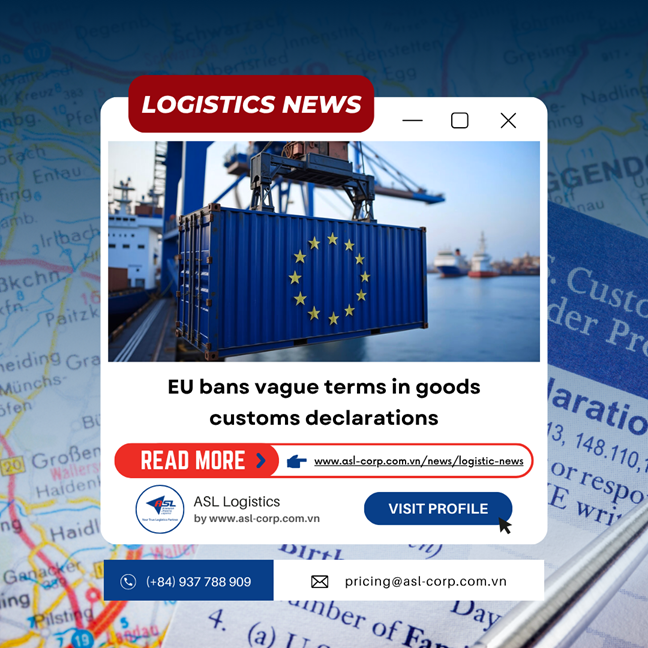
.png)
.png)

.png)

